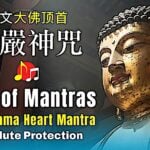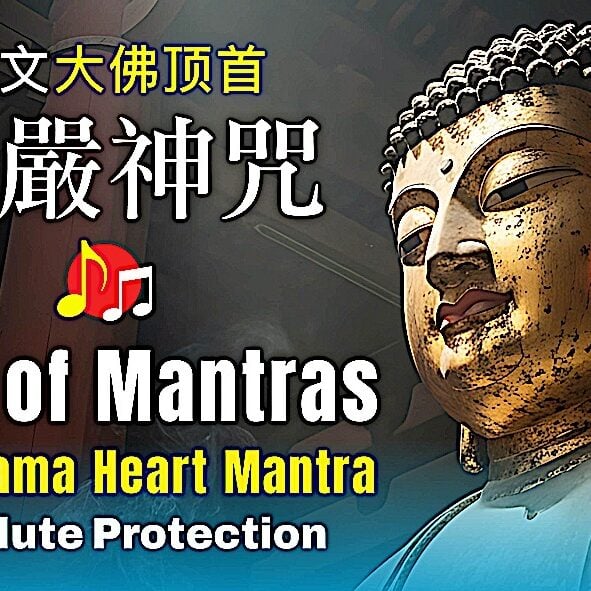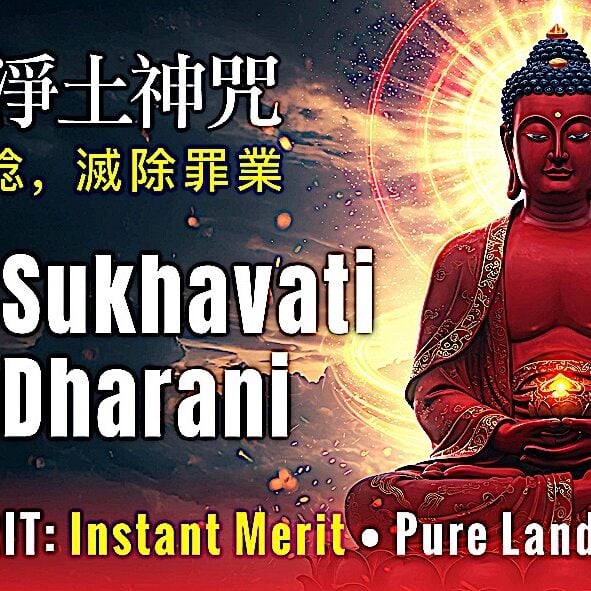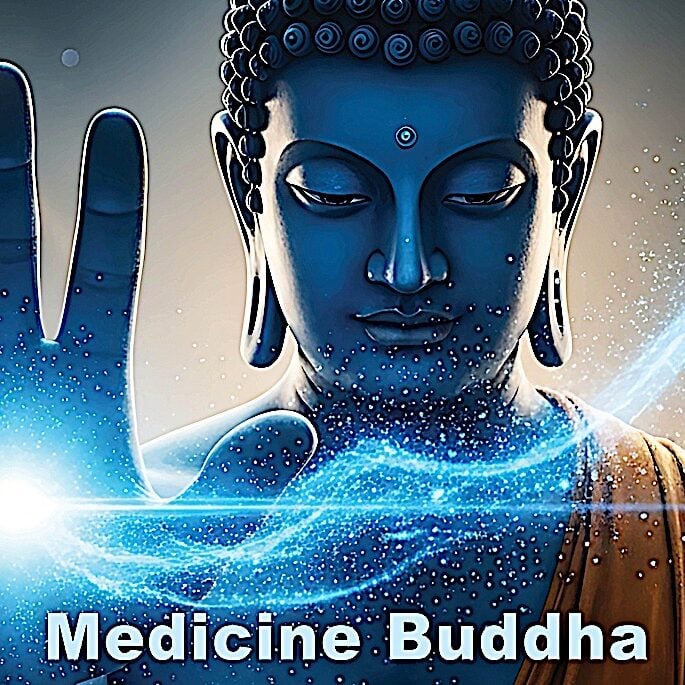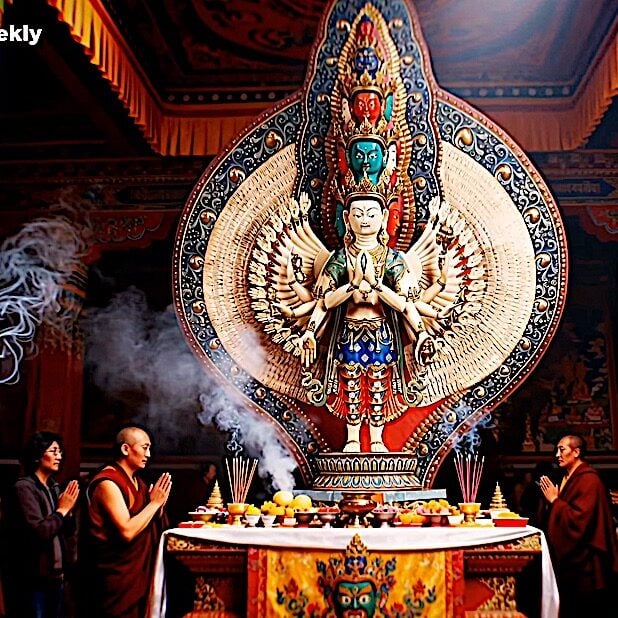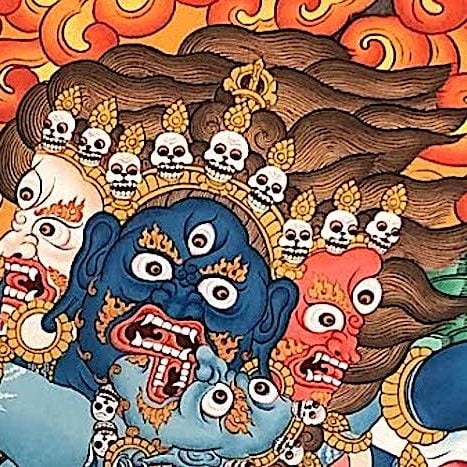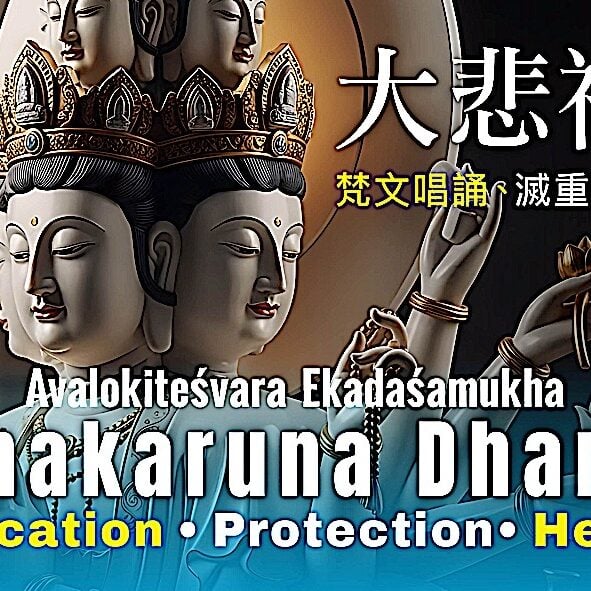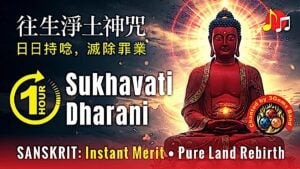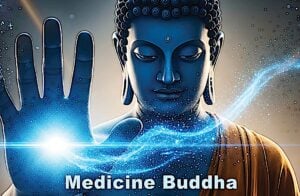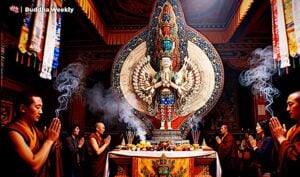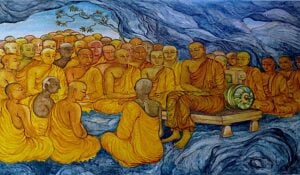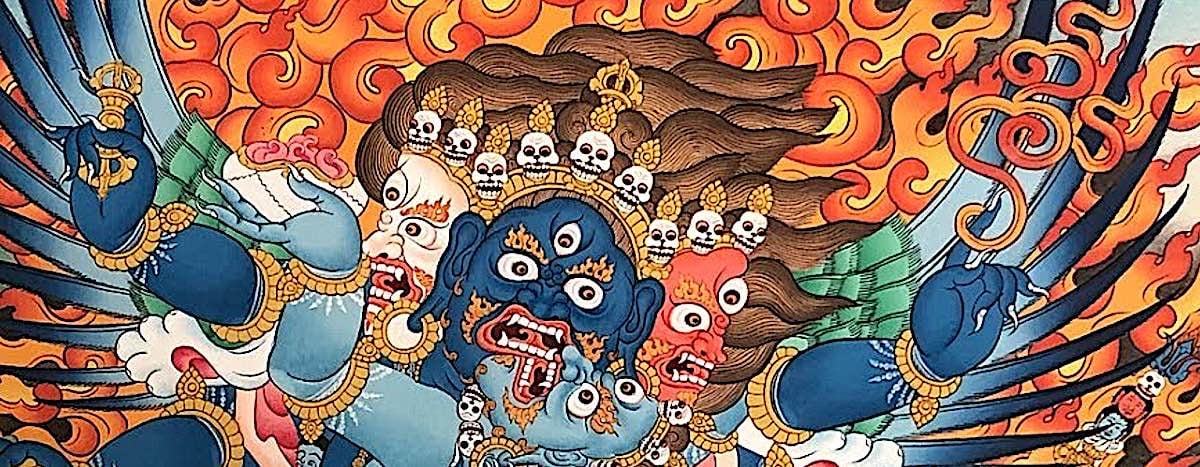VIDEO: Vajrapani Documentary: indestructable hand of the Buddha. All about the “Lord of Secrets”; ends in 108 mantras
Why does Vajrapani Bodhisattva’s name mean “indestructible hand of the Buddha?” Why is he also called the “Lord or Secrets”? Why is Vajrapani one of the three most important Bodhisattvas?
Come along with us now as we get to know this wrathful emanation of Vajrapani, the embodiment of the power of all the Buddhas.
After our brief documentary, listen or chant along with the Sanskrit version of his mantra — famous for accomplishing the Enlightened power, overcoming all of our obstacles.
Vajrapani’s name means, literally, “Indestructible Hand” — the Hand of the Buddha. “Vajra” literally translates as “indestructible diamond”, and “Pani”, in this context, means hand, so one translation of Vajrapani is Indestructible Hand. Another, less interesting translation is “Thunderbolt in hand.” He is also called the Lord of Secrets, because he guards the power of “secret mantra.”
The benefits of his practice, according to the Tantra of the Supreme Origination of Vajrapani are:
“If the disciple renders one obeisance to Vajrapani, he attains more merits than he would have secured through rendering numerous obeisances to myriads of Buddhas as many as the total grains of sands in ninety-two million Ganges Rivers… If he relies on Vajrapani as his Yidam Buddha and recites the Mantra, he will surely be protected by Vajrapani from all hindrances. No demons can hurt him, all illness will be cured, his merits will be increased and prosperity augmented. All his wishes will be fulfilled. Thus, the benefits of practicing this ritual are beyond description, nothing can afflict those who practice it. The practitioner of this ritual will also accomplish all the four activities — Pacifying, Enriching, Magnetizing and Wrathful. He will encounter no obstacles. Therefore, one should always rely on Vajrapani, take him as one’s shelter and refuge. Also, those who have chronic diseases will be cured through reciting the Mantra of Vajrapani.”
The Power Bodhisattva
He is one of the three great Bodhisattvas, together with Avalokiteshvara and Manjushri, who respectively represent the three important aspects of Buddha: Power, Compassion, and Wisdom.
He is not only important in Mahayana sutra, but appears in early Pali Sutta — Ambattha Sutta (“Pride Humbled”)— mighty Vajrapani, the Protector of Gotama Buddha Himself, humbled a prideful Brahmin:
“And at that moment Vajrapani holding up a huge iron club, flaming, ablaze and glowing, up in the sky just above Ambattha was thinking, “If this young man does not answer a proper question put to him by the Blessed Lord by the third time of asking, I’ll split his head into seven pieces!” The Lord saw Vajrapani, and so did Ambattha. And at the sight, Ambattha was terrified and unnerved, his hairs stood on end, and he sought protection, shelter, and safety from the Lord. Crouching down close to the Lord.”
Vajrapani, who belongs the Vajra Family of Akshobhya Buddha, is also often called Guhyapati , or the “Lord of Secrets”, in the context of Vajrayana, the “secret mantra” path. The secret element is more about “looking inward” and the tantric methods of understanding the true nature of reality — tantric insight into truth — than the idea of keeping esoteric secrets.
In the Vajra vidarana Sutra, Vajrapani’s “inward” nature is explained:
“Condensed within you alone,
Is the power and strength of all the Buddhas.
Manifesting in the wrathful form of the enlightened Vajra,
I pay homage to you Vajra Vidarana, the Subduer.”
More articles by this author
Search
Latest Features
Please support the "Spread the Dharma" mission as one of our heroic Dharma Supporting Members, or with a one-time donation.
Please Help Support the “Spread the Dharma” Mission!

Be a part of the noble mission as a supporting member or a patron, or a volunteer contributor of content.
The power of Dharma to help sentient beings, in part, lies in ensuring access to Buddha’s precious Dharma — the mission of Buddha Weekly. We can’t do it without you!
A non-profit association since 2007, Buddha Weekly published many feature articles, videos, and, podcasts. Please consider supporting the mission to preserve and “Spread the Dharma." Your support as either a patron or a supporting member helps defray the high costs of producing quality Dharma content. Thank you! Learn more here, or become one of our super karma heroes on Patreon.
Lee Kane
Author | Buddha Weekly
Lee Kane is the editor of Buddha Weekly, since 2007. His main focuses as a writer are mindfulness techniques, meditation, Dharma and Sutra commentaries, Buddhist practices, international perspectives and traditions, Vajrayana, Mahayana, Zen. He also covers various events.
Lee also contributes as a writer to various other online magazines and blogs.




